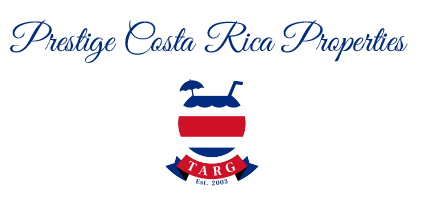Costa Rica's Capital Gains Tax and its Affect on Real Estate Assets
The capital gains tax in Spanish is called “Ganancias de Capital.” It was bound to happen! Capital gains tax is now a reality in Costa Rica and has been in effect since July 2019. What’s the rate? Well, the capital gains rate is fifteen percent (15%) of the gain. Being a home owner in Costa Rica, it is important for you to know how this tax can affect your personal tax situation.
 Q1) So how does it work and who has to pay it?
Q1) So how does it work and who has to pay it?
A1) The first important thing to know is that the tax is based on the local currency, the Colon, not US Dollars, Canadian Dollars, or your home currency. Also important to know: not everyone has to pay the tax. If you are a resident of Costa Rica with your permanent residency filed with the immigration department, you are exempt from paying the tax if it is your primary residence.
A2) If you own a home or condo and are in the process of obtaining your residency, and can prove you have been residing in the country for more than 180 days in a calendar year, then you are legally considered domiciled or living in Costa Rica. What does this mean? The home or condo is your permanent residence, and primary residences are not taxable for capital gains.
Q2) So where and when does the capital gains tax come into play?
A1) Basically, when you sell and if you make a profit on the sale of the property.
Example 1) You own a condo or a home, whether in your personal name or the name of a Costa Rican corporation or other legal structure. You use it a few times a year as a vacation spot, or you rent it out when not in use. Now, you have decided to sell your property. The tax is calculated by the difference between the colon rate on the date when you purchased (the registered value of the property) and the colon rate on the day the property sale closes. A local CPA will be required to assist with these filings.
Example 2) You purchased a lot to build your dream home, but life events changed things up. Now, you want to sell your lot. The tax is calculated again by the difference between the colon rate on the date when you purchased (the registered value of the property) and the colon rate on the day the property sale closes. A local CPA will be required to assist with these filings.

Q3) Are there any deductions allowed?
A1) The short answer is yes, there are. Here’s a list of some of the items you can use as deductions to lower any capital gains tax you may have to pay. The important thing is to make sure you get a legal factura electrónica for any and all items you paid for towards the improvement of your property.
- Legal Fees - the amount of money you paid to your legal team in their fees, when purchasing and selling, can be deducted.
- Accounting services.
- Construction company.
- Topographer.
- Any improvements you made to the property, i.e., repainting the property, adding a storage facility, buying new furniture, etc. But it is important to remember you need to ask the service provider for a legal Factura Electrónica. This shows that you actually paid the 13% IVI tax or service provider tax.
Q4) But I bought my property before the capital gains tax law came into effect, how does that work?
A1) The capital gains tax law stipulates that if the asset was acquired prior to January 2019, the seller has the option of either paying two and one-quarter percent (2.25%) of the total sale or fifteen percent (15%) of the gain. Whichever is more advantageous for the seller.
The most important thing is when selling your Costa Rica property, always ask your legal advisor and local CPA how this will play out for your needs. If you do not have a local CPA, ask your legal team to recommend one. You could save yourself some of the tax requirement by knowing a few of the requirements above.
